Proceedings of the
Workshop
"The Magellanic Clouds and Other Dwarf Galaxies"
of the Bonn/Bochum-Graduiertenkolleg
Holes and Shells in Galaxies:
Observations versus Theoretical Concepts
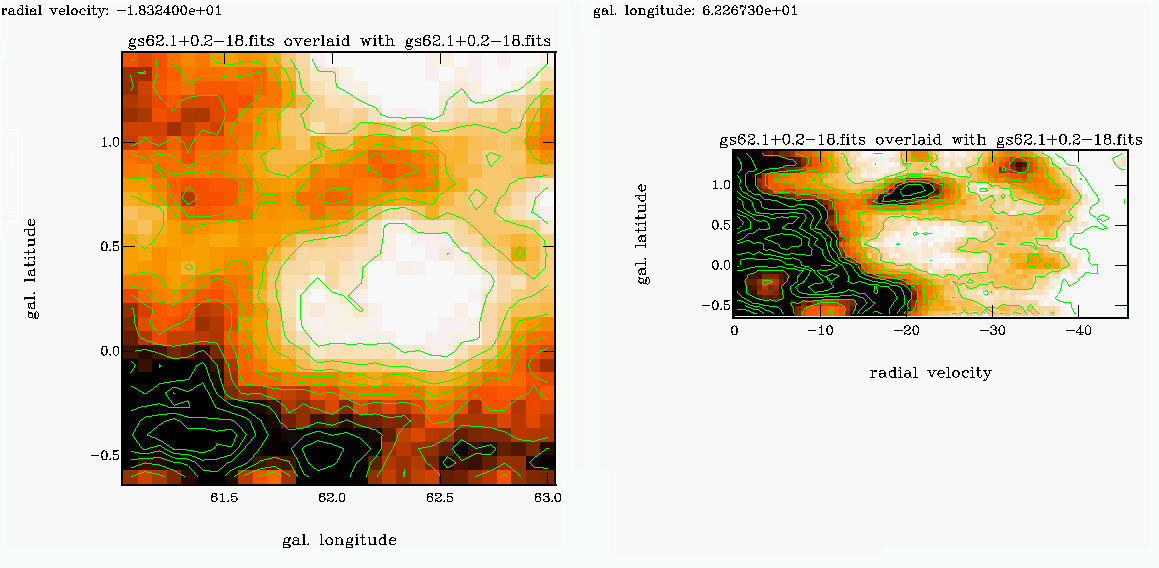
Fig. 1.
GS62.1+0.2-18: the l-b intensity map at the LSR radial velocity
-18.3 km s-1 (left panel), RV-b cut at
l = 62.3° (right panel)
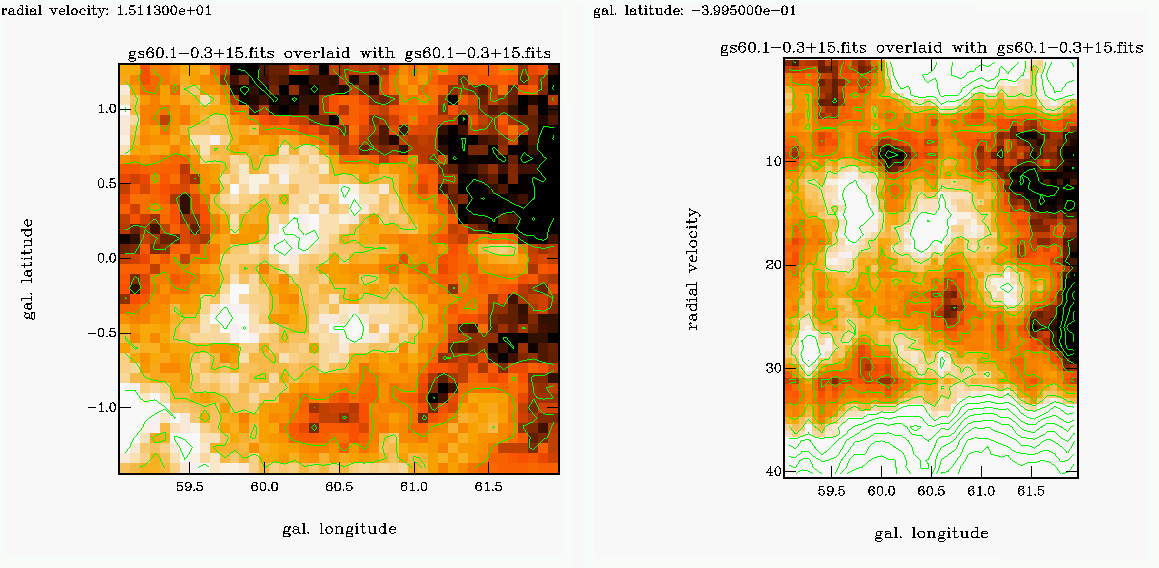
Fig. 2.
GS60.1-0.3+15: the l-b intensity map at the LSR radial velocity
+15.1 km s-1 (left panel), l-RV cut at
b = -0.3° (right panel)
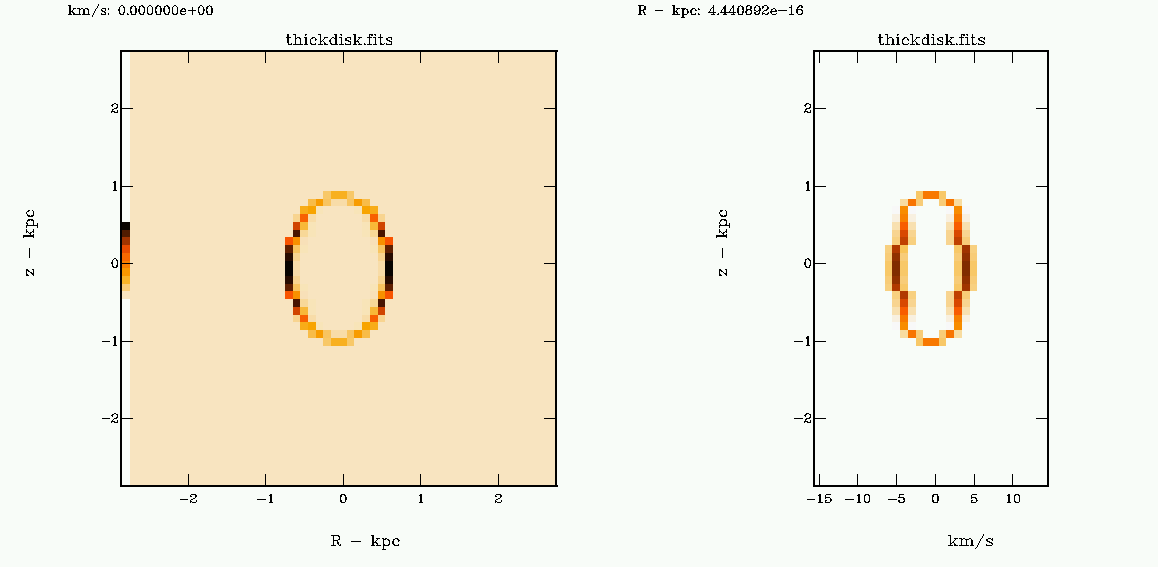
Fig. 3.
The expanding shell in the thick H I disk, result of 3D
simulation using the thin shell approximation.
R-z cut of the artificial data cube at the radial velocity equal to
the systematic velocity of the shell relative to the observer (left panel),
RV-z cut crossing the center of the shell (right panel)
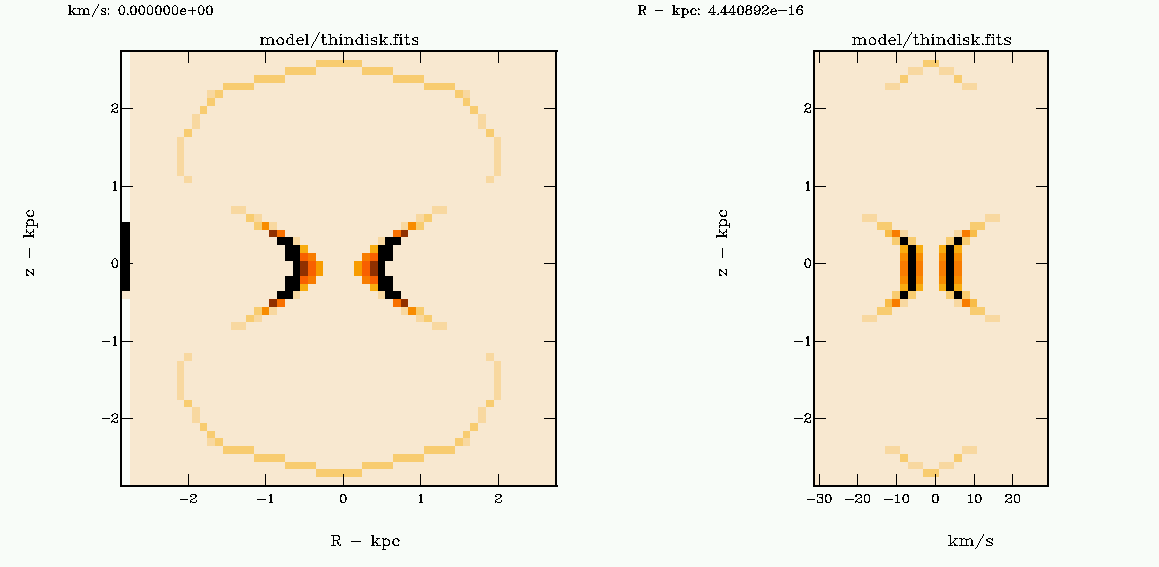
Fig. 4.
The expanding shell in the thin H I disk, result of 3D
simulation using the thin shell approximation.
R-z cut of the artificial data cube at the radial velocity equal to
the systematic velocity of the center of the shell relative to the observer
(left panel), RV-z cut crossing the center of the shell (right panel)
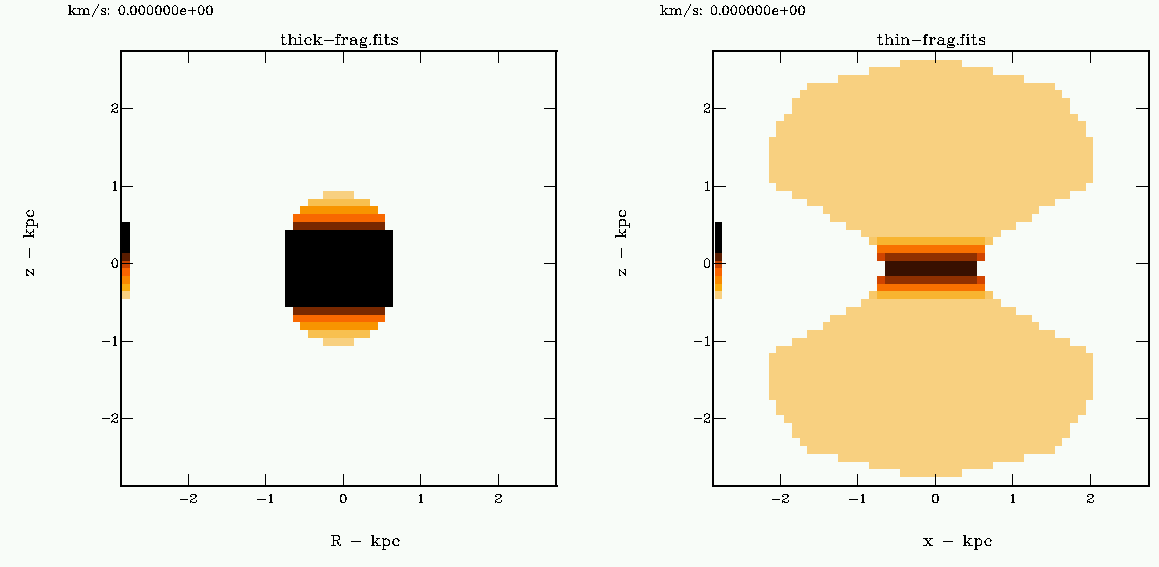
Fig. 5.
The expanding shell, result of 3D simulation using the thin shell approximation.
The values of the fragmentation integral along the expanding shell in the thick
disk case (left panel), and in the thin disk case (right panel)
Diagrams like Figs. 1 and 2 can also be seen in the poster contribution
'New H I shells in the
Milky Way' by Sona
Ehlerová and Jan
Palous:
GS59.9-1.0+38 (Fig. 1) and
GS60.0-1.1-54 (Fig. 2).
Links (back/forward) to:
| First version: | 05th | July, | 1998
|
| Last update: | 25th | September, | 1998
|
Jochen M. Braun &
Tom Richtler
(E-Mail: jbraun|richtler@astro.uni-bonn.de)




